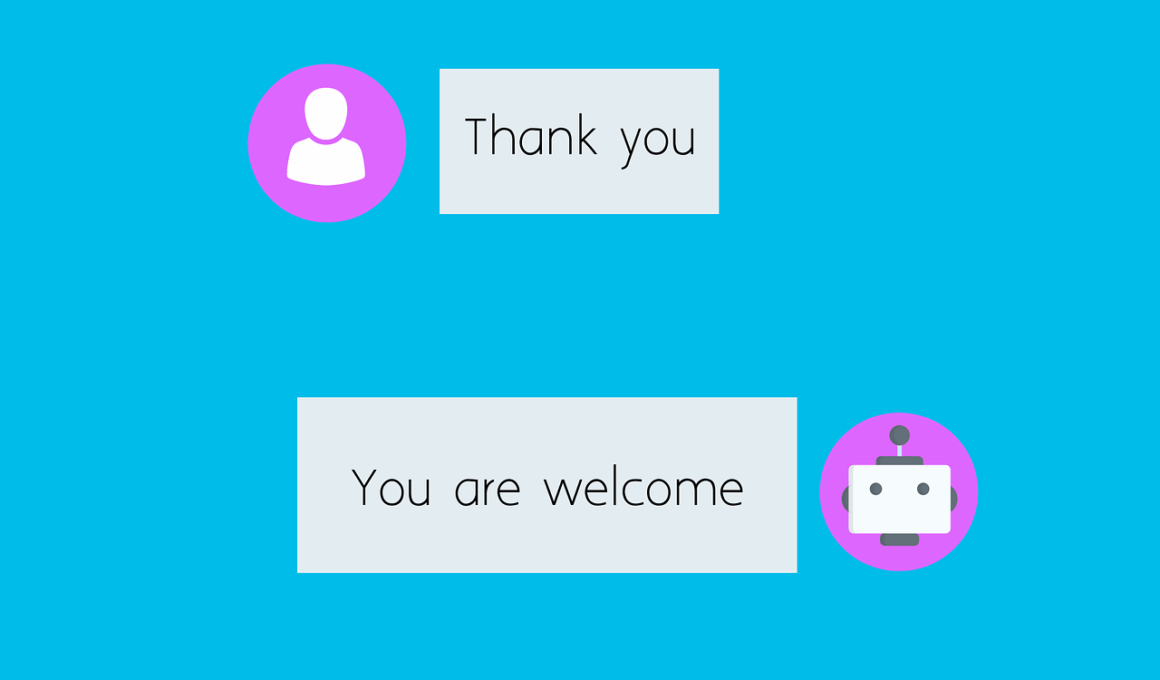Step-by-Step Guide to Becoming a Certified Social Media Customer Service Agent
In today’s digital world, mastering social media customer service has become essential for many organizations. This guide highlights the key steps you should follow to become a certified social media customer service agent. Start by researching various certification programs available online. Many accredited institutions offer training that can help you understand the nuances of using social media platforms effectively for customer support. To select the best program, read reviews and testimonials from other students. Consider what topics are included in the course to gauge their relevance. Look for programs that incorporate real-life scenarios to ensure practical learning. Make sure that the course covers essential areas such as communication skills, social media strategies, and crisis management. Enrolling in a respected certification program builds your credibility and enriches your skill set. Finally, remember that gaining certification is just the beginning. This certification aims to enhance your professional opportunities and career growth. Once you are certified, apply your newfound knowledge by gaining hands-on experience through internships or part-time roles in customer service. Observe how established professionals interact with customers online.
Developing Critical Skills
To excellently perform as a social media customer service agent, you need a diverse skill set. Start by improving your communication skills, focusing on being clear and concise. Proper communication is vital to articulate solutions to customers quickly. You should also familiarize yourself with various social media platforms like Twitter, Facebook, and Instagram, as different platforms have unique customer interaction styles. Additionally, learn the best practices for using each platform to optimize your responses. Emotional intelligence is another essential skill. Understand how to read customer sentiments through their messages, which will help you respond appropriately. Train yourself to manage stressful situations calmly and professionally. Time management skills are crucial since social media environments often require quick responses. Organization can streamline your workflow, ensuring quick resolution of customer queries. Do not forget about conflict resolution skills, which will enable you to handle dissatisfied customers effectively. Providing exceptional customer support can transform a negative experience into a positive one. Consider role-playing exercises or simulations to practice these skills before taking on actual customer service tasks. Engaging in workshops can also facilitate the development of these essential skills.
Understanding Customer Needs
Understanding your customers is at the core of effective social media customer service. It’s crucial to know the common issues and questions customers have regarding your service or product. Start by researching customer demographics to tailor your communication accordingly. Create a database of frequently asked questions (FAQs) that addresses typical customer inquiries. Enhance it over time by incorporating insights from social media data analytics. Regularly reviewing customer feedback will help you grasp their needs better. Utilize monitoring tools to track mentions of your brand and gather insights about customer perceptions. This will help you stay alert to issues before they escalate. Engage with customers by inviting them to share their experiences with your service. Sending polls or surveys through social media can provide more in-depth insights. These insights are invaluable for improving service quality. Equally important is the interaction approach; be empathetic and attentive to ensure customers feel valued. Personalize your responses when possible, using their names and past interactions to acknowledge their relationship with your brand. Building rapport not only fosters customer loyalty but also enhances overall brand image.
Certification programs typically consist of various core modules designed to equip you with knowledge essential for effective social media management. These modules cover customer engagement, complaint resolution, and analysis of social media metrics. After completing these training modules, you may be required to take an exam or complete a project demonstrating your skills. The certification process will also often include practical assignments to reinforce the knowledge you have obtained. Engaging with peers or instructors during the program can enhance your understanding. Look for programs offering networking opportunities for students, as this can be beneficial for future job prospects. Completion of a reputable program not only enhances your resume but also indicates to potential employers your commitment to developing relevant skills. After certification, keep your skills updated by attending webinars, workshops, or taking additional courses that focus on the latest trends. The social media landscape evolves rapidly, so continuous education is key in this field. Certification should not be viewed as a final goal but rather as a stepping stone to a productive career in social media customer service.
Networking in the Industry
After obtaining your certification in social media customer service, it’s important to network within the industry. Establishing connections can lead to job opportunities and collaboration prospects. Attend industry conferences, workshops, and seminars related to customer service and social media marketing. Such events provide ample opportunities to meet like-minded individuals, industry leaders, and potential employers. Make the most of these interactions by sharing your experiences, asking for advice, and exchanging contact information. Colleagues or mentors can provide guidance on career paths and help you navigate the sector more effectively. Online platforms like LinkedIn can also serve as valuable tools for networking. Create a professional profile detailing your skills, experiences, and certifications. Join relevant groups and discussions to engage with other professionals, learn from their experiences, and stay updated on industry trends. Follow industry influencers who often share valuable insights. Engaging with your network not only increases your visibility but can also lead to referrals for job openings. Remember, effective networking is two-way; be willing to assist others in your network as well.
Once you feel equipped with the knowledge and networking support from your certification, it’s time to start applying for positions. Focus on companies with a strong social media presence, as they will likely value your skills and training. When drafting your resume, highlight your certification prominently. Ensure any practical experiences and skills are articulated well. Use keywords from the job descriptions in your applications to maximize your visibility. Tailoring your application materials can significantly enhance your chances of landing interviews. Prepare for interviews by practicing common customer service scenarios, particularly those relevant to social media platforms. Research each company’s social media engagement strategy and understand their brand voice. This will demonstrate your commitment and interest during the interview process. During interviews, emphasize your ability to manage challenging customer interactions with professionalism and empathy. Show enthusiasm for the role and express your passion for customer service and social media. A positive attitude can set you apart from other candidates. Taking the initiative to follow up with prospective employers after interviews can leave a lasting impression.
Continuous Improvement and Learning
Becoming a certified social media customer service agent is just the beginning of your journey in this dynamic field. As you gain experience, it’s essential to prioritize continuous learning. Keep abreast of emerging trends, tools, and technologies related to social media and customer service. Subscribe to newsletters or blogs in the industry that provide insights on best practices. Participate in forums and discussion groups to broaden your understanding and foster innovative ideas. Attending additional workshops or courses can also help you expand relevant skill sets. Consider obtaining advanced certifications tailored toward specialized niches within social media management. Furthermore, seek feedback from managers and peers regarding your performance. Constructive criticism is invaluable for personal growth. Set specific goals for your professional development, such as improving response times or increasing customer satisfaction ratings. Regularly assessing your progress will ensure you remain competitive in this evolving landscape. Embrace change as a constant in social media, adapting your approaches as necessary. Validate your efforts by monitoring customer feedback and satisfaction metrics to gauge the effectiveness of your interactions.
As you advance in your career, explore various paths that may lead to leadership or managerial roles within social media customer service. Developing a specialization can make you more desirable to employers and broaden your career prospects. Specializations can include social media strategy, data analysis for customer insights, or crisis management. Becoming an expert in these areas can lead to roles involving higher levels of responsibility. Research trends to identify areas in social media customer service that are emerging, as these often provide unique opportunities for growth. Networking remains essential, as connections may lead to unexpected career paths. Embrace mentorship opportunities, either as a mentor or a mentoree; both roles foster professional development. Your experience can also pave the way for consulting opportunities in customer service strategy. By sharing your knowledge at conferences or seminars can establish you as a thought leader within the space. Ultimately, be proactive about your career advancement and never stop seeking new learning opportunities. The more you invest in your professional growth, the more impactful your contributions will be in the field of social media customer service.


